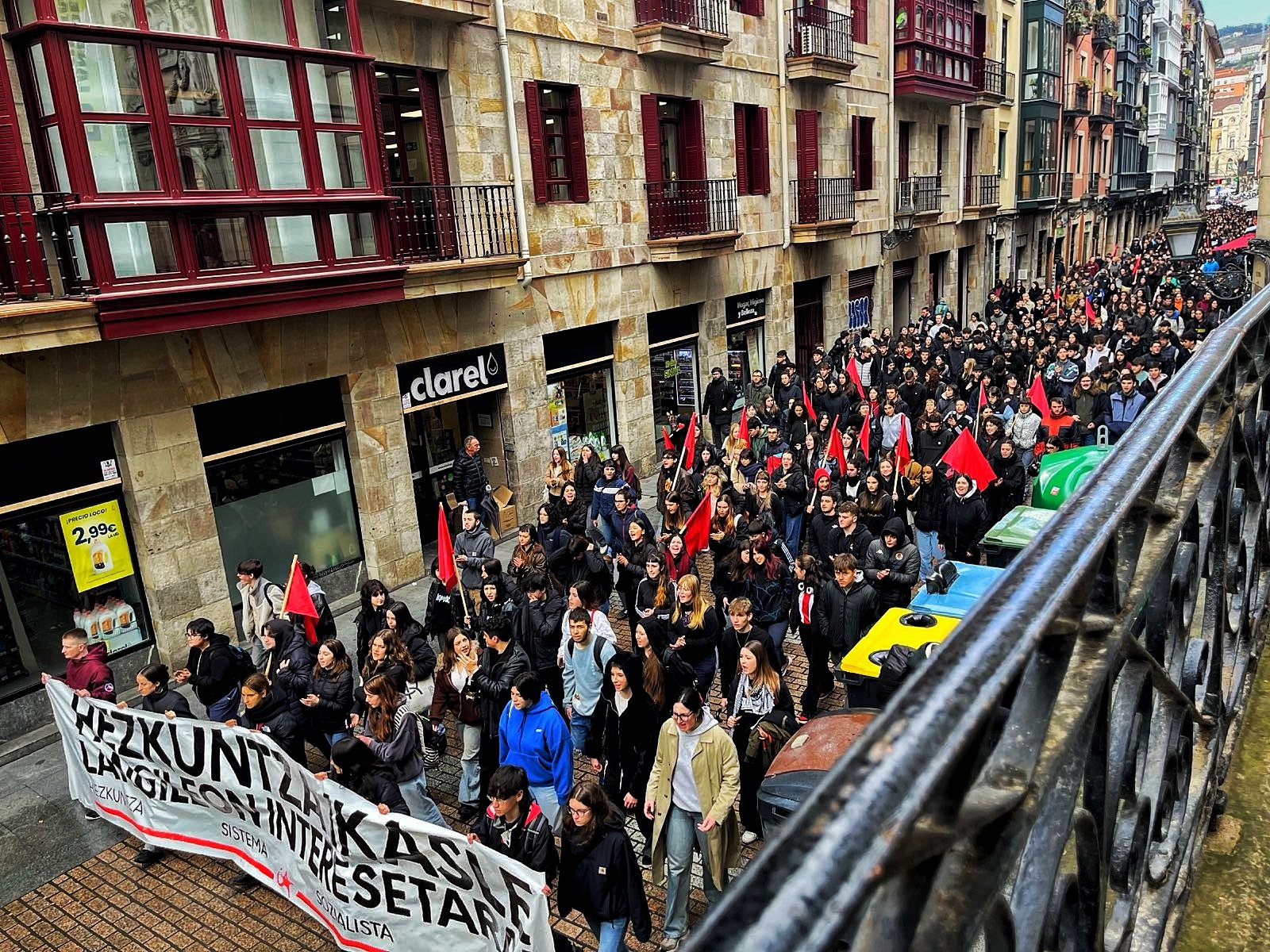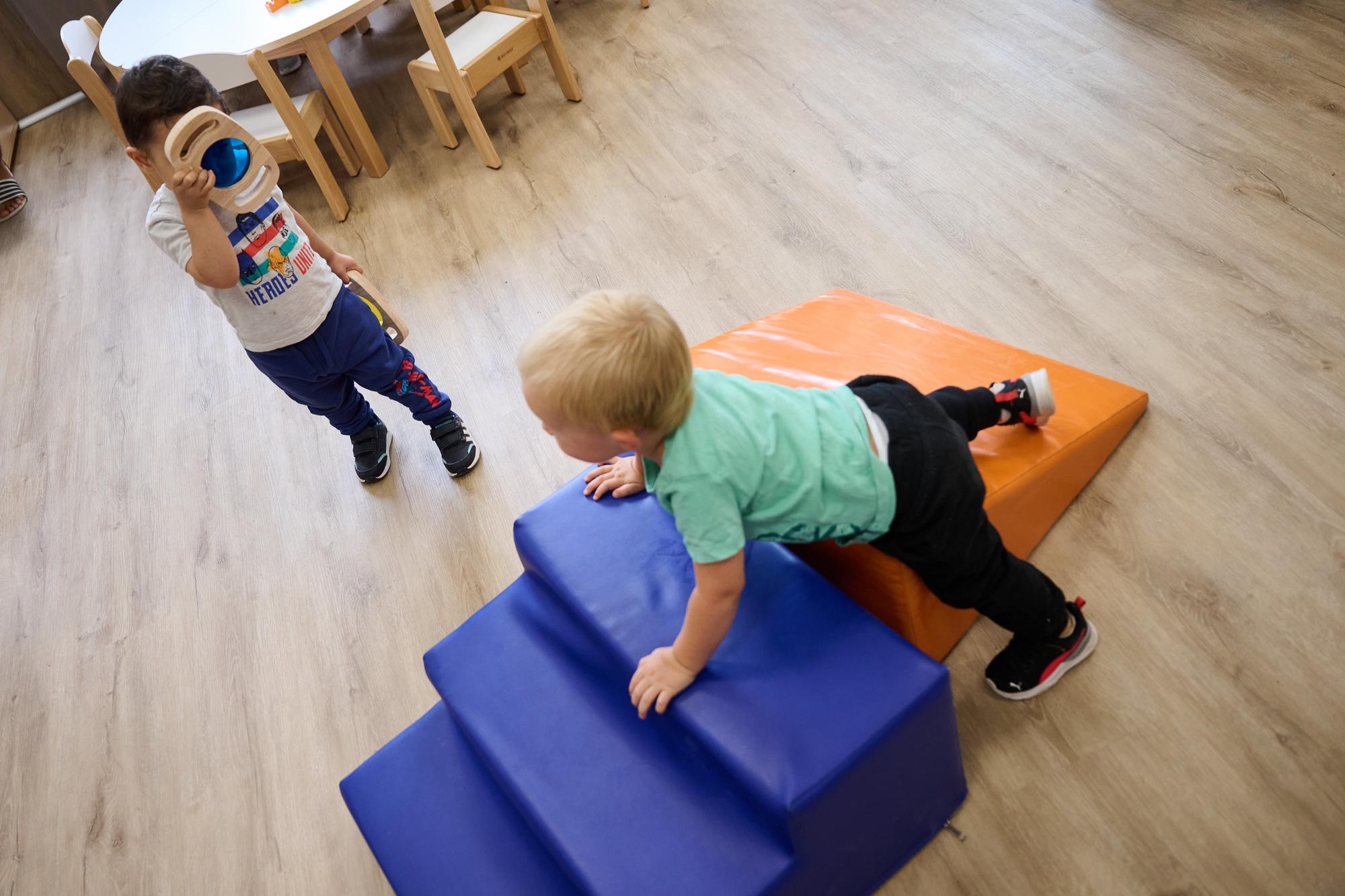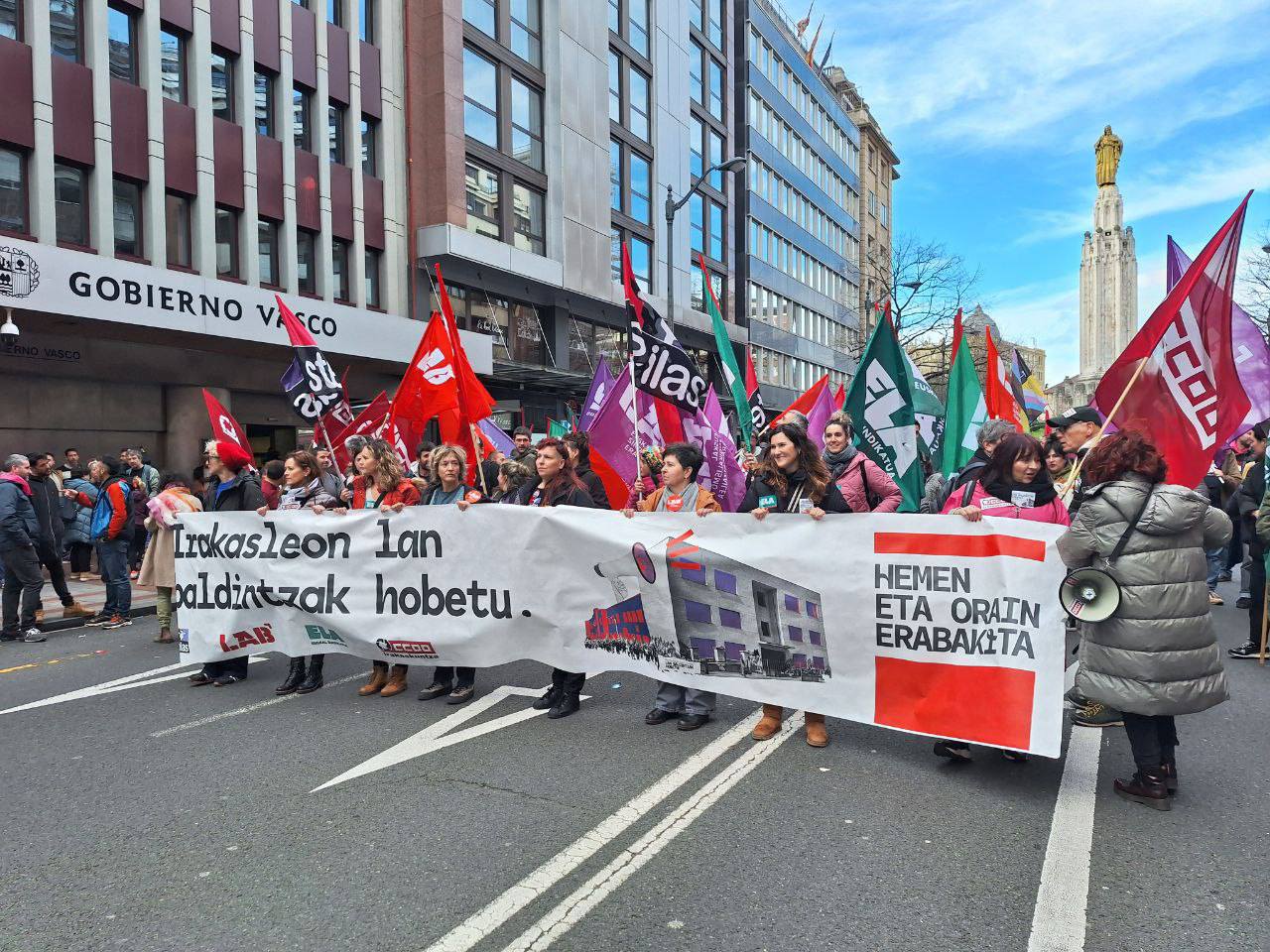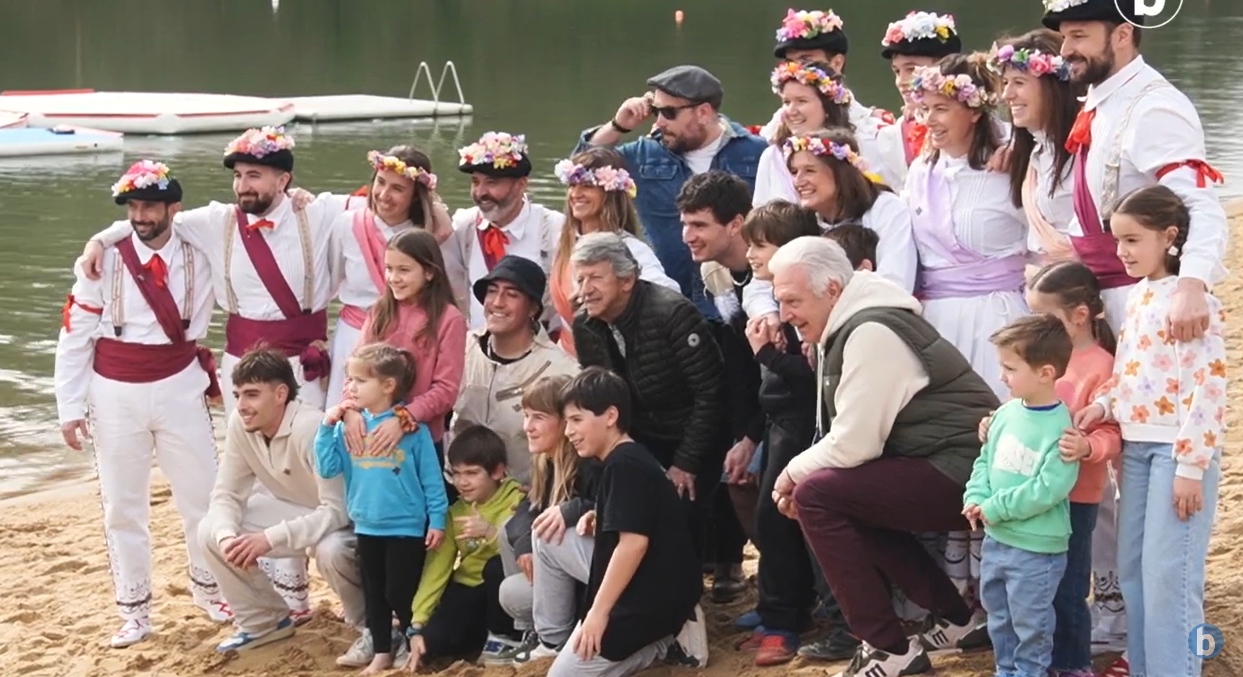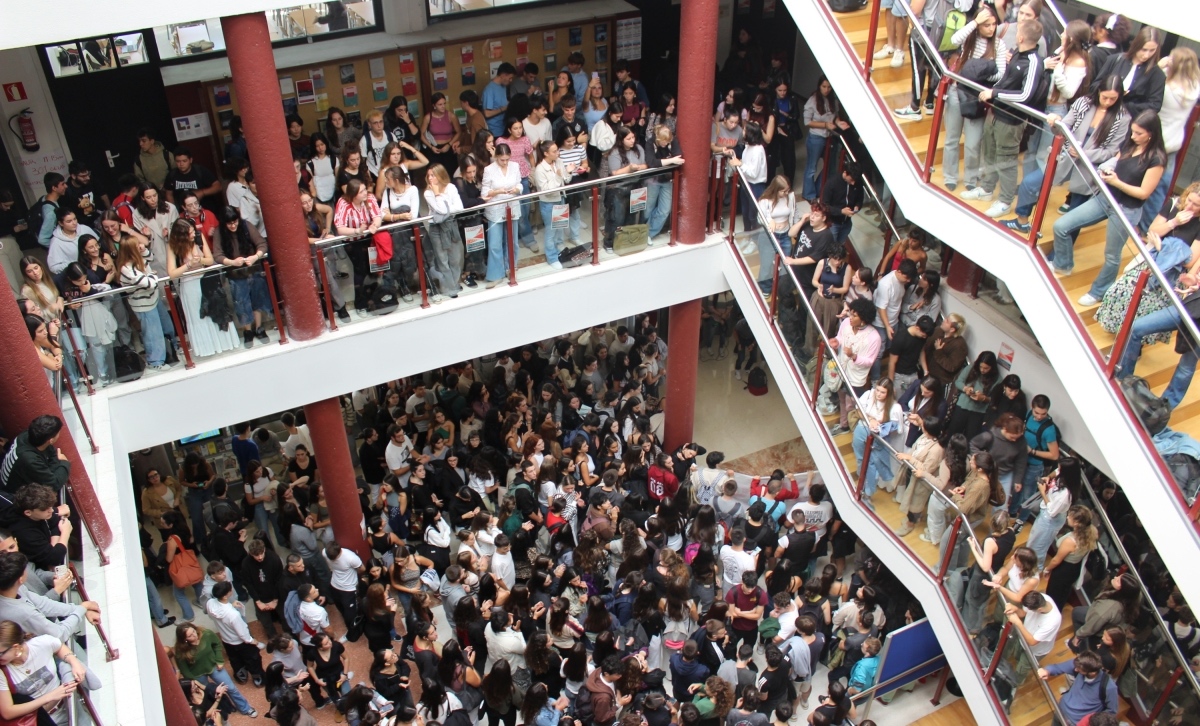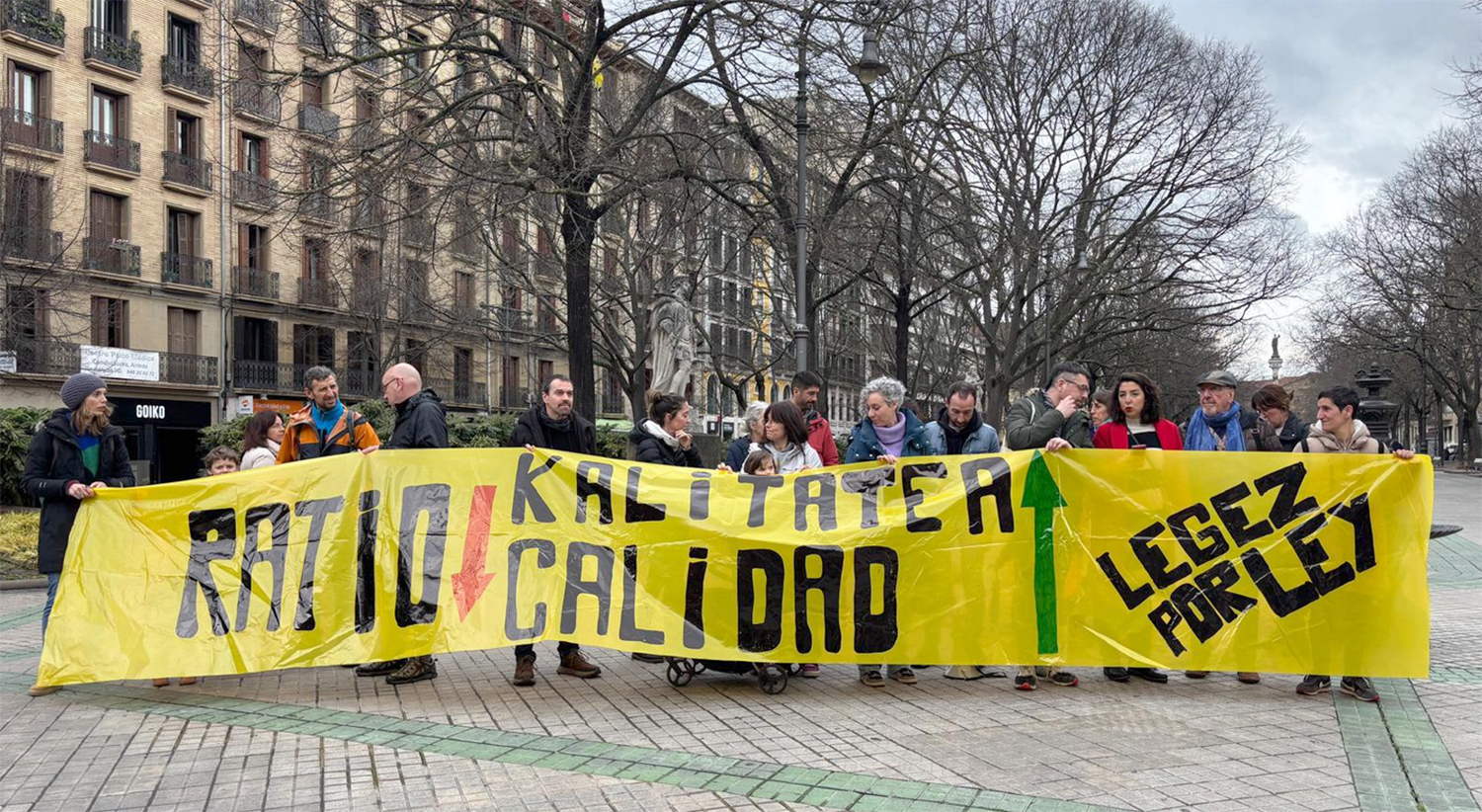"We have to distinguish between language and voice, the voice in that language"
- He is a PhD professor at the University of Pennsylvania in the United States. Study language and education in different cultural and linguistic situations. It usually combines studies of anthropology, linguistics, sociolinguistics and politics. It has mainly analyzed indigenous and immigrant languages, Ketxuese communities in Peru and Bolivia, Cambodian and Puerto Rican groups in Philadelphia (US).
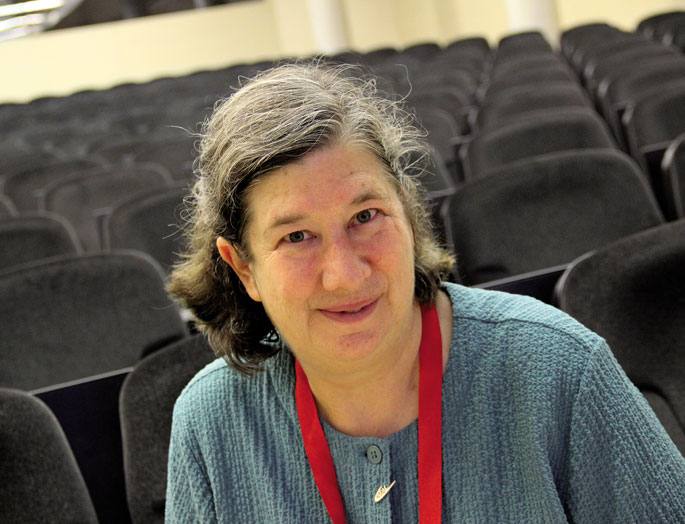
You have studied ketxu, guarani, maori… What has led you to investigate these different languages?
My work is based on an ethnographic, anthropological view. Whatever it is, suppose I really want to study it in depth. To do so, I look at a local context. If the research is carried out correctly, if the local people identify with the research you have done, then people from other contexts are also inclined to read the experience and, if you have worked in quite detail, you could also try to look for similarities. There is, of course, another form of research. Some of them are looking for globalization. We don't generalize, we don't work for it, we don't teach lessons, the reader draws conclusions, if any. Ethnographic view, therefore. On the other hand, the analysis of the different contexts presupposes understanding what is happening in each context.
And compare them?
Then making comparisons is not surprising. That's what we're always in our lives, making comparisons, trying to understand the world. Anyway, don't think about it: before I started studying the Guarani, the Maori, etc., I did twenty-five years in the Andes doing various jobs. While I was there, I received an invitation to tell me about experiences from other places. They called me. In all the places where there are activists or movement for an indigenous language, I have seen people eager to learn about experiences from other places, fascinated to see that they are not only fighting in that struggle, but that they are working to strengthen and disseminate their dominated language.
What do they do in a linguistic community is transferable to another reality?
It is not possible to copy, but to take advantage of the strategy, experience, ideas… equal or similar. For example, one of the great hooks of bilingual education. People who are not in this field, and a lot of what they are doing!, ha, ha, ha…, are looking for the best model, they are looking for it here and there: “What works? We want to take him to us!” My answer is always one: each case has to be understood and developed at the local level, there is no other. In the bilingual teaching processes that I have analyzed, I have seen that all of them offer a series of guidelines that can be used by the teachers, researchers and politicians who work in the local context to develop their local bilingualism. I believe that there may be generalizable principles, but it is impossible to import a particular model.
What are the politicians who devise a strategy for language?
The relationship between those working for the revitalization of languages in communities and politicians… How to say it? I find this a real challenge, I am becoming more and more aware of it and, on the other hand, I do not know how it can be resolved. For example, there is a politician who is concerned about the situation of the Guarani – I am referring to the Guarani. The politician in question will be in charge of the Government for about eight years and, after those years, a profoundly opposed politician will often come, who will respond to the situation of the Guarani differently from the previous one. But education lasts much longer than a politician's office, it has a long way to go. To see the results of any education reform, you need at least an entire generation. You have to see boys and girls building the education system, if you have results…
Have you ever known these situations?
In Bolivia, in Peru, in Ecuador, where I have worked for longer, I have seen what happens: a real intense and energetic movement in favour of the bilingual education system – a wave that has lasted up to ten years, if you will – and then a new politician takes over, you lose everything you have done so far. Well, you never lose everything, but you lose a lot. On the other hand, I don't talk to those who design politics in my work. The truth is, I don't think they give a direct answer to bilingual education. I've been working in this field for decades, and on the one hand, what design policy calls bilingual education, often -- with indicators and quantities in hand -- is not bilingual. On the contrary, where the politician says that education is not bilingual, it has happened to us that education is really bilingual. It's a real dilemma, and I'm sorry, but I don't have a sure answer.
They had just arrived in New Zealand, when they entered the school where the Maori was taught, and immediately they asked him: “What do you think about bilingual education?”
I am and still am blind by a bilingual education, after four decades of work. I've written an article, "Ten certainties about bilingual education." Bilingual education opens a door that does not open any other educational system, opens up citizens, especially oppressed people, to people who are excluded from their society by language. Obviously, along with language, on many occasions, there are ethicity, racism, poverty, social classes and many other issues. However, I have acceded to this world through language, and not in vain, because language is not only a vocal expression, but an expression of identity, and a means to embody our studies.
The pupils of the New Zealand school were concerned that bilingual education was nothing but justifiable, the argument that the status and level of minority language had never been given. First, this school had strictly prohibited the use of English.
I think bilingual education is not enough on its own. Anyway, bilingual education is not the key to revitalizing language, it's not the answer. In the rest of society there is also a need for recognition so that this minority language has a real presence in its use. On the other hand, we have to distinguish between language and voice, let it be the voice in that language. The voice is the speaker's ability to be heard. If the speaker in question manages to hear him, he will have some power. When someone listens to you, they answer you, they speak for you or against you… it means that what you are saying is important.
“Quintachatan nintzen. Vasiliak zazpi urte zituen orduan. Asko interesatzen zitzaidan Vasiliaren eskolako gela hura, irakaslea benetan irakaskuntza elebiduna egiten ari zen-eta. Oso irakasle ona zen, bestalde. Eta hantxe, gainerako ikasleen artean, neska hura, Vasilia. Isila zen, oso. Gainerakoak ere isilak ziren, baina ez Vasilia bezainbat. Bosgarren mailan zuen anaia, Justo. Etnografia lana egiten ari zarenean, beti da baten bat berehala lagun egiten duzuna. Nik Justo izan nuen lagun hori. Atsegina, alaia, jatorra… Eta, behin, etxera eraman nahi izan ninduen. Eta hantxe ikusi nuen Vasilia, ketxueraz hitz egin eta hitz egin. Harri eta zur utzi ninduen. Gelan batere hitz egiten ez zuen neska txikia, etxean isiltzen ez zena! Eskutik hartu eta sorora eraman ninduen, eta landare guztien izenak esan zizkidan ketxueraz. Ordurako ikasita nengoen ketxuera, eta Vasiliarekin hitz egin ahal izan nuen. Harrezkero, gogoan daramat Vasilia. Zer ote zen berarentzat eskola? Etxean ahotsa zuen, eskolan ez. Uste dut gela barruan behin ere ez niola hitzik aditu”.
Hezkuntza bi arazo handik zeharkatzen dutela adierazi dute IAk: "ideia erreakzionarioen" gorakadak eta "ikasleen egoeraren okertzeak". Mobilizazioaren deialdia hedatzeko, goizean errepide mozketak egin dituzte Donostian, Iruñean eta Gasteizen. Bilbon, Euskal... [+]
Iruñeko haur eskoletako zuzendariek, EH Bildu, Geroa Bai, Zurekin Nafarroa eta PSNren arteko akordioa kritikatu dute. “Murgiltze ereduaren alde egin dugu beti, baina inoiz ez da gure iritzia kontutan hartzen” salatu du Euskalerria Irratian, Garikoitz Torregrosa... [+]
Zinez txalogarria, eskolako irakasle talde jakin baten borondatez, eta zenbait gurasoren inplikazioz, A ereduko ikastetxe estigmatizatu bat D ereduko eskola bilakatzeko abian jarri duten prozesua Gasteizko Judimendi auzoan. Honela, posible egiten ari dira Araba, Bizkaia eta... [+]
2025-2026 ikasturterako matrikulazio kanpaina hasi baino bi aste lehenago, Hezkuntza Saileko arduradunengana jo genuen, itunpeko eskoletako gelen ituntze maila ez delako egokitzen demografiaren jaitsierara eta indarrean dagoen lege esparrura.
Hiri gehienetan arazo orokorra... [+]
Eskolako zenbait gurasok euskalduntzeko egindako ahalegina ikusarazi, eta hezkuntza komunitatean euskararen aldeko jarrerak piztu. Helburu horiekin bultzatu du Autobiografia Linguistikoak ekimena Ramon Bajo ikastetxeko Basartea gurasoen elkarteak, Gasteizko Alde Zaharrean. Pozik... [+]
Martxoaren lehenengo lanegunarekin batera, komunikabideetan azalduko ez diren aldaketak etorri dira EHUn. Azken Lan Publikoko Eskaintzaren ondorioz, ehunka langile –arlo tekniko eta administrazio zerbitzutakoak– orain arte okupatzen zuten lanpostutik atera eta beste... [+]
Eskola inguruko natur guneak aztertu dituzte Hernaniko Lehen Hezkuntzako bost ikastetxeetako ikasleek. Helburua, bikoitza: klima larrialdiari aurre egiteko eremu horiek identifikatu eta kontserbatzea batetik, eta hezkuntzarako erabiltzea, bestetik. Eskola bakoitzak natur eremu... [+]
LABek, STEILASek, ELAk eta CCOOek greba egutegi bateratua aurkeztu dute Bilbon: martxoaren 25, 26 eta 27, eta apirilaren 1 eta 2. Egungo hitzarmenak aldarrikatutako edukietatik urrun kokatzen direla adierazi dute, "bai sukaldearen eta garbiketaren kolektiboan zein... [+]
"No entiendo, en castellano por favor" eta gisakoak ohikoak dira eskolako guraso Whatsapp taldeetan, baina Irungo Txingudi ikastola publikoan euskara hutsean aritzeko modu erraz eta eraginkorra dute, behar duenarentzat itzulpen sistema berehalakoa ahalbidetuta.
Ez dakit nondik hasi, egia esan. Ordezkoa naizen heinean –irakaskuntzan ikasturte gutxi batzuk daramatzat lanean– eskola ugari ezagutu ditut Nafarroa, Bizkai eta Araban zehar. Lankide izan ditudan irakasleekin euskal eskolak dituen gabezien inguruan hitz egiten... [+]
“Gogo eta gorputzaren zilbor-hesteak: bi kate. Bi kate, biak ebaki beharrezkoak: bat gorputzaren bizitzeko, bestea gogoaren askatzeko”. Hala dio Mikel Laboaren kantak; hala izan da belaunaldiz belaunaldi, egun arte.
Gogoan dut nire gurasoak askotan joaten zirela... [+]
Matxismoa normalizatzen ari da, eskuin muturreko alderdien nahiz sare sozialetako pertsonaien eskutik, ideia matxistak zabaltzen eta egonkortzen ari baitira gizarte osoan. Egoera larria da, eta are larriagoa izan daiteke, ideia zein jarrera matxistei eta erreakzionarioei ateak... [+]
Elgarrekin izena du Duplak egin duen aurtengo abestiak eta Senpereko lakuan grabatu zuten bideoklipa. Dantzari, guraso zein umeen artean azaldu ziren Pantxoa eta Peio ere. Bideoklipa laugarrengo saiakeran egin zen.
Leporaturikoa ez onarturik, eta sare sozialetako kontuak "lapurtu" zizkiotela erranik, salaketa jarri zuen Arabako campuseko Farmazia Fakultateko irakasleak. Gernikako auzitegiak ondorioztatu du ez dagoela modurik frogatzeko mezu horiek berak idatzitakoak diren ala ez.
Seme-alabek eskolan dituzten ratioekin kezkatuta, Arartekoari kexa helarazi zion guraso talde batek, eta orain zuzenean Parlamentuari egin diote eskaera, “legez berma dadin gure seme-alaben hezkuntzaren kalitatean oinarrizkoa den neurria, unean uneko aurrekontuez edo... [+]











